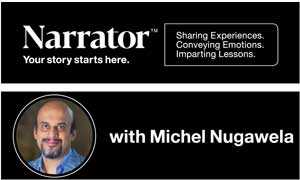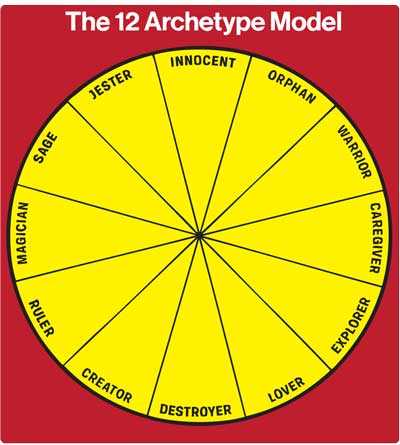Tuesday Feb 17, 2026
Tuesday Feb 17, 2026
Tuesday, 29 September 2020 01:15 - - {{hitsCtrl.values.hits}}

Versatility is a crucial skill
A dominant theme to emerge from the first five stories in our ‘Advice to my younger self’ series is that the single-most important skill for a leader today is versatility.
In his column of 18th August, Krishan Balendra, chairman/CEO of John Keells Holdings, contrasts his earlier career in investment banking with the operational complexities of running Keells’ supermarket business in 2012.
“It was a very different experience to being in the consultant camp as an investment banker. My entire career up until that point was really a desk job, and that included my years as an investment banker at UBS.”
His advice: “If you have excellent qualifications, great, well done, but roll up your sleeves and get your hands dirty at some point. You’ll learn a lot from that.”
Reflecting on his own career and formative years, Jonathan Alles, managing director/CEO of HNB, urges aspiring leaders to “gain wider experience outside your narrow area of specialization; to develop the competencies and skills that are essential to complement your work, to move up the ladder, and to impart down the line.”
Importantly, he emphasizes the need to “open up more space within us to accept parts of our personality and life that we consciously left out earlier in our career.”
Chairman of People’s Bank, Sujeewa Rajapaksa’s story in his column of 8th September is noteable for its sheer purposiveness, but once again underscores the need for versatility. “I would say the biggest challenge I faced was breaking my negative mindset,” he says. “If I wanted to climb the ladder and become a leader, then I would need to break that negativity by focusing on my core competencies and driving with my strengths, while managing my weaknesses.”
And as we gain the necessary width to complement depth and scale the ladder of professional success, Rajkumar Renganathan, chairman of Ceylinco Life, in his column of 15th September reminds us that we live a life of trade-offs. “It is essential to get your fundamentals right, and the three I will never compromise are integrity, honesty, and meritocracy. These come from your faith, family and early days at school. They are reflected in how you lead your business and your daily life.”
So versatility enhances our performance. It enables us to play the widest possible role (or roles), personally and professionally, by broadening our perspective and expanding our repertoire of skills and behaviours.
But juggling multiple roles and the boundaries between them can also lead to role conflict in our time-poor lives. “I worked longer hours and put more effort into my career and work-related goals,” says Jonathan Alles, “but the imbalance also kept increasing as I sacrificed other things that I used to do and be a part of – the time I spent with my wife, children, family, and friends, and even looking after and developing myself.”
Every day, these multiple roles compete for our attention in what appear to be never ending win-loss situations. The time we allocate for one role often seems to come at the expense of another.
And so we need a system to proactively manage our roles – and ideally, one that is also based on our personal motivation, energy, resources, and expectations. I’d like to provide an answer to how we can do that through the archetypal model we use at Narrator.
Self-awareness through archetypes
We tend to think of ourselves as being born with a brain, the ‘hardware’, along with a blank hard drive, the ‘memory’. In this popular view, what we ultimately become in life depends on what we learn and experience, which we keep adding to our ‘memory’ drive.
But in the same way that genetic traits are passed down from parents to their children, we’re also born with a core of knowledge – our inherited or genetic memory, or archetypes – which are hardwired into our brains or mental computers over the course of millennia. You can think of them as ‘memory chips’ which come ‘factory installed’ at birth.
These archetypes have names – the Innocent, Orphan, Warrior, Caregiver, Explorer, Lover, Destroyer, Creator, Ruler, Magician, Sage and Jester – although the nomenclature can and does change with the times. Each archetype has a human face and set of personality traits – a core that motivates our perspectives, thoughts, feelings, actions, and behaviours.
For example, you will find the Destroyer prevalent where there is an emphasis on the divestiture of value-destroying businesses or processes, which then allow resources to be refocused on where the organization excels. “Neutron” Jack Welsh acquired 600 businesses, divested 400 and slashed tens of thousands of jobs to make GE the world’s most valuable company, after Microsoft. Steve Jobs was also one of the great destroyers of our time, disrupting entire categories, industries, and ultimately our existing way of doing things.
Each archetype, then, enables us to perform a role in our personal and professional lives. The more we understand the different types, the more roles we are able to play. Many of us, however, get “stuck” and see the world only through the lens of a single perspective (or single archetype). When the context changes and our goals and objectives need to be re-evaluated, we simply fail to see the need to think and act differently.
This, I believe, also explains Krishan Balendra’s ‘helicopter view’ statement: “A lot of people have good visions and strategies, but don’t necessarily realize the challenges of execution. People who don’t have exposure think you just put together a plan and do it. But that’s also where a lot of businesses fall short.”
By gaining a wider perspective on the different perspectives and behaviours that are available to us through archetypes, we gain the ability to align the multiple roles we are required to play in our personal and professional lives with our inherent strengths, competencies, motivation, energy, resources and expectations.
Rather than being blinded by our strengths, we’re able to move beyond a rigid and narrow view and open ourselves to opposing perspectives and behaviours. We gain self-awareness – a remarkable competitive advantage in this day and age.